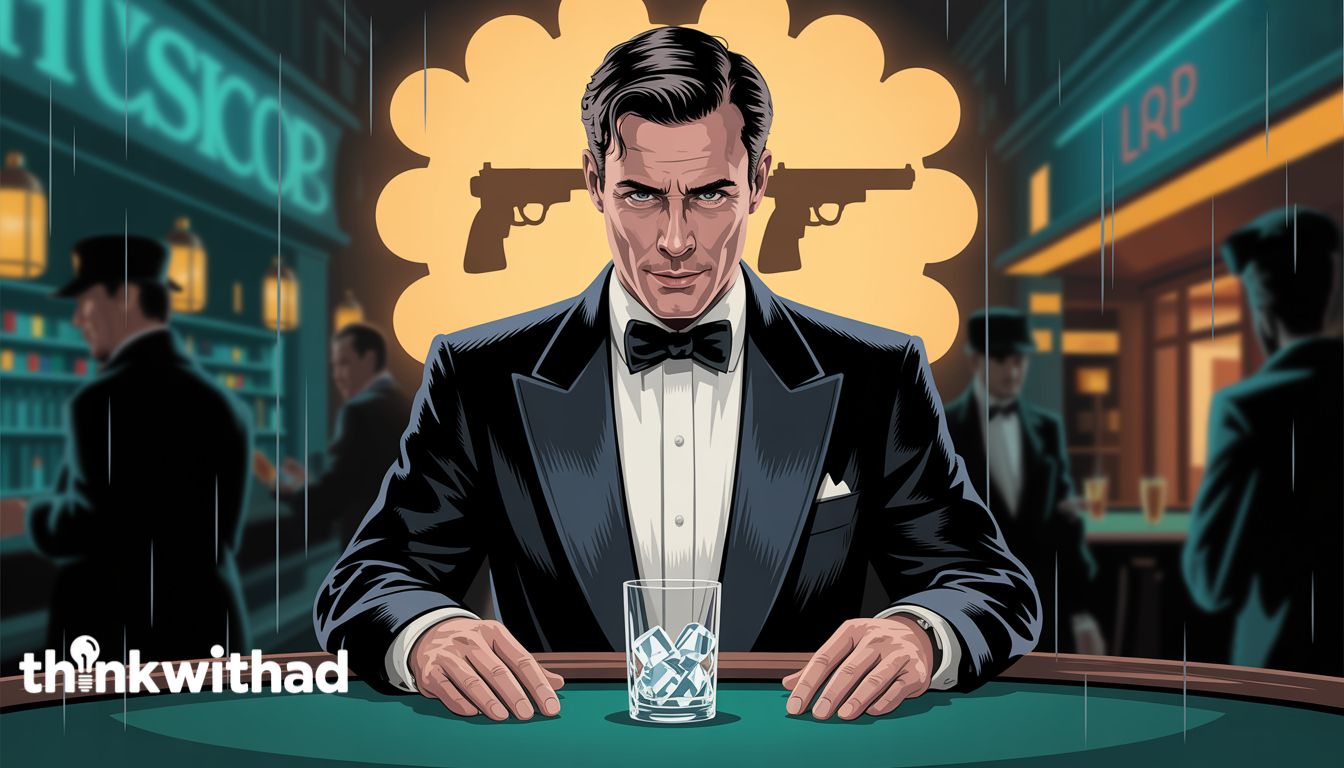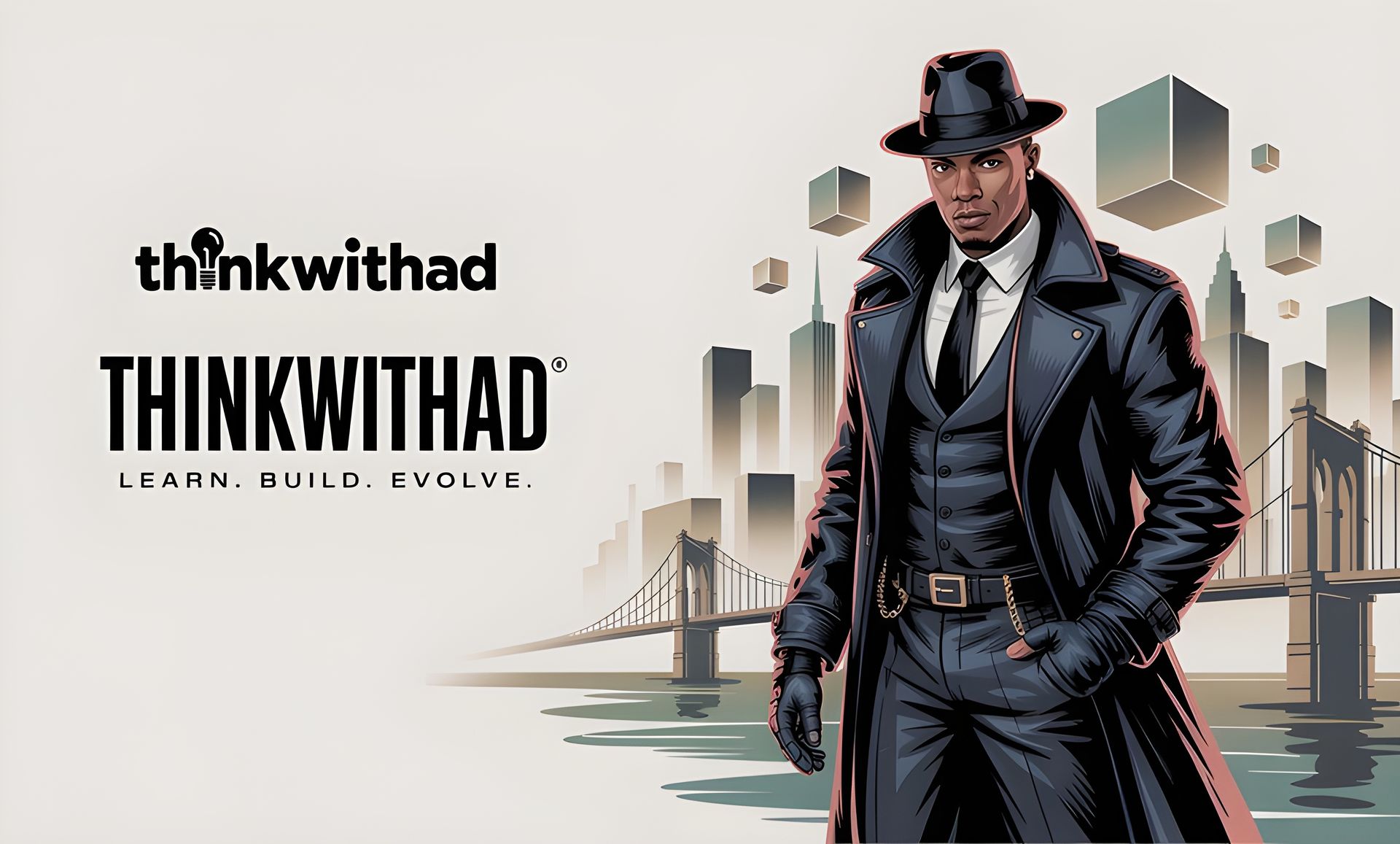Modern 007, Real-World Moves (1995–Now) — Gear You Can Use & The Bond Mindset

If you grew up crowding a chunky tube TV for GoldenEye 007 on N64—arguing over Oddjob bans, calling “slappers only,” and accusing your cousin of screen-peeking—you already know the Bond formula: simple tools, clear mission, calm under pressure. That same rhythm runs through the modern films from GoldenEye to No Time To Die: get a tight brief, pick one or two pieces of kit that actually matter, and execute with discipline. No circus gadgets, no ten-step menus—just reliable moves when the room gets loud.
What makes it work isn’t the hardware first—it’s the headspace. Bond wins because the objective is crisp, the gear list is short, and the reps are real. “Less to go wrong” isn’t a slogan; it’s a system. When your plan is clear and your tools are simple, decisions get faster, errors drop, and your confidence reads before you say a word.
That’s the energy here. Below, we translate late-era Bond moments into real gear you can actually use—without franchise logos—the habits that make that gear effective, and a mindset you can train so you stay cool and decisive when it counts—whether you’re launching a product, pitching a client, or handling a small crisis without turning it into a big one.
GoldenEye (1995): One tool, one job
- On screen: Laser watch; three-click pen grenade. Under stress, each does exactly one thing—perfectly.
- Make it real: Cut the bloat. Build a kit you can use half-asleep.
- Physical gear that helps: a compact multi-tool you’ll actually carry; a metal-body pen that writes anywhere (and can crack glass); a slim headlamp or pocket flashlight for hands-free fixes in dark corners.
- Why it matters: In a scramble, menus and mode wheels slow you down. Muscle memory wins.
Tomorrow Never Dies (1997): Remote control—with protection
- On screen: Bond drives the BMW from a phone, backed by spikes, armor, failsafes.
- Make it real: Operate from anywhere—safely.
- Physical gear: a 5G/LTE hotspot (separate from your phone) for instant internet; a small UPS on your modem/router so calls and POS stay up during blips; a surge-protected power strip with individual switches; lawful dash cam/GPS trackers for your vehicles/equipment (with consent).
- Why it matters: Laptop + hotspot + power = you’re rarely “down.”
The World Is Not Enough (1999): Safety that stays quiet
- On screen: Avalanche jacket looks normal—until it saves his life.
- Make it real: Build invisible safety nets.
- Physical gear: a labeled first-aid + trauma kit (check monthly); a compact AED for offices/gyms/studios; a small power station to keep phones/POS/lighting up during longer outages; smoke/CO detectors and a mini extinguisher where you control the space.
- Why it matters: “We planned for this” beats panic every time.
Die Another Day (2002): Skip the gimmicks
- On screen: The “invisible car” wowed in trailers and aged badly.
Make it real: Buy boring gear that performs for years. - Physical gear: a solid webcam, a USB mic, and a neutral key light for meetings and content; a few acoustic panels to kill echo; rugged external SSDs for fast, safe storage.
- Why it matters: If it doesn’t save time, reduce errors, or cut cost, it’s a distraction.
Casino Royale (2006): Prep beats panic
- On screen: Poisoned. Glovebox defib + a plan keep him in the fight.
Make it real: Write the steps when you’re calm so you can follow them when you’re not. - Physical gear: hardware security keys (YubiKey-style) for bank/email/crypto/registrar; a water/fire-resistant document pouch for passports and recovery cards; a labeled external SSD for grab-and-go backups; printed “what to do” cards (outage, refund surge, lost device) taped inside a cabinet.
- Why it matters: In a real mess, your brain wants checklists, not inspiration.
Skyfall (2012): Less kit, more skill
- On screen: Q hands Bond a palm-coded PPK and a radio. “Less to go wrong.”
Make it real: Lock down access. Train the basics until they’re automatic. - Physical gear: a biometric safe/lock box for laptops, cameras, and drives; a small locking network cabinet if you run gear on-site; a whiteboard + phone stand to record fast SOP videos your team can follow with zero context.
- Why it matters: The edge is reps, not buttons.
Spectre (2015): Smart blood, smarter metrics
- On screen: Nanotech pings Bond’s location—useful, not flashy.
Make it real: Track what you own (lawfully). Keep notes searchable. Kill vanity metrics. - Physical gear: asset trackers for your bags/gear (consent where required); an e-ink note tablet for distraction-free capture that turns handwriting into text; a whiteboard camera or angled phone mount so brainstorms become clean, searchable notes.
- Why it matters: If you can’t find it or search it, you don’t really have it.
No Time To Die (2021): Kill the noise
- On screen: EMP watch fries electronics and buys space.
Make it real: Reduce your attack surface. - Physical gear: Faraday sleeves for spare fobs/test phones when you travel; cable locks for laptops/monitors in shared spaces; a label maker to tag devices/cords/cases; a spare offline SSD kept unplugged as last-resort backup.
- Why it matters: Complexity is a daily tax. Turn off what hurts you.
Interlude: From the couch to the boardroom
Back to those late nights on GoldenEye 007: Facility speedruns, license-to-kill pistols, proximity mine traps—everything was clean routes and fast decisions. That muscle still matters. When you choose simple tools, short checklists, and clear exits, you make better moves because you can act at game speed.
Develop the Bond Mindset (calm, clear, decisive)
Mission-first clarity
- Write the outcome before you start: “This exists to ____.” If you can’t finish the sentence, pause. Clarity trims busywork and makes decisions obvious.
Calm on command
- Use a 5×5 reset: inhale 5 seconds, hold 5, exhale 5, hold 5—repeat twice. Do it before hard calls, pitches, or incident triage. Your brain works better when your heart rate drops.
Situational awareness (O-O-D-A)
- Observe → Orient → Decide → Act. Don’t camp in “observe.” Take a small action, learn, adjust. Momentum > perfection.
Pre-mortems & debriefs
- Before launch: “If this fails, what likely caused it?” Fix those points now.
- After action: 15 minutes—what worked, what broke, what one change prevents that class of failure again.
Discretion & boundaries
- Not every win belongs on the timeline. Protect client info, pipeline details, and internal tooling. Quiet confidence outlasts loud posts.
Resilience by tiny wins
- On rough days, do the floor move: one email, one page, one set. No-zero days keep the streak alive and your self-trust intact.
Lines you don’t cross
- Ethics are part of the kit. Consent for tracking/recording, honest offers, tight privacy. Reputation compounds; shortcuts don’t.
Practice one habit per week. Stack them. That’s how “calm under pressure” becomes normal.
A small “Q kit” you can build this week
- Core: multi-tool, metal pen, headlamp/flashlight.
- Uptime: UPS for router, 5G hotspot, surge strip.
- Security: hardware keys, document pouch, cable locks, biometric safe.
- Continuity: labeled SSD backups (store one offsite), printed checklists.
- Presence: webcam, USB mic, key light, a few acoustic panels.
- Capture: e-ink note tablet or whiteboard + phone mount.
Keep it tight. Make it easy. Use it often.
One line you don’t cross
Trackers are for your property (with consent and within the law)—not people. Recording rules vary by state/country. Don’t copy illegal “spy” behavior. Long-term trust beats short-term tricks.
Closing shot
Bond wins because the mission is clear, the gear is simple, and the reps are real. Build your world the same way—mindset first, then tools—and you’ll stay calm when the room gets loud…and walk out with the win.
🧠 ThinkwithAD – PULSE
Real-world moves for growth—money, mindset, and execution. Urban lens, professional delivery. No hype—just strategy you can use.

⚠️ Disclaimer: This article references fictional characters and films (1995–present) for educational commentary. It isn’t endorsed by or affiliated with the James Bond franchise or its rights holders. Product ideas here are examples, not endorsements. Use tracking/recording devices lawfully (consent, ownership, local regulations). For business, legal, financial, or security decisions, consult qualified professionals.